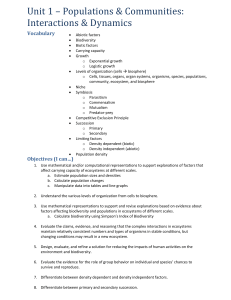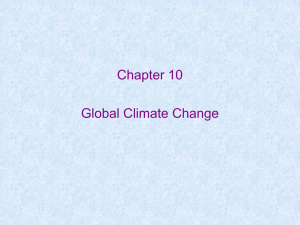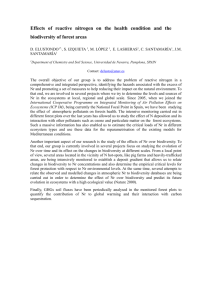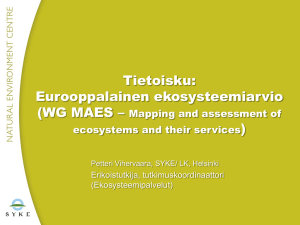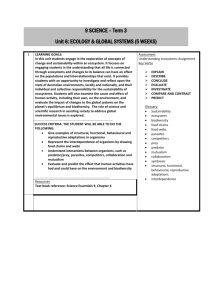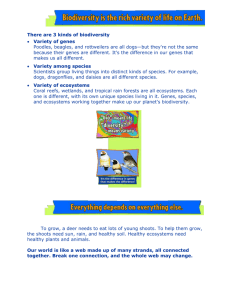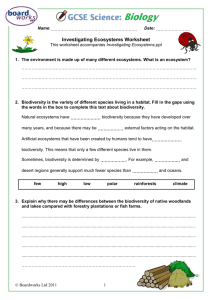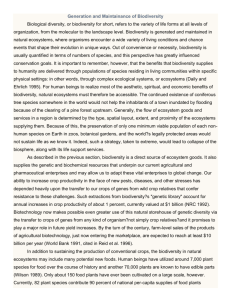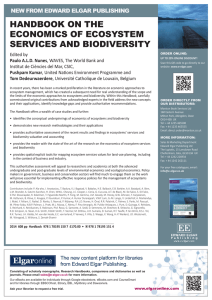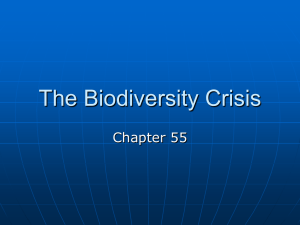Declaration "For a culture of biodiversity"
advertisement
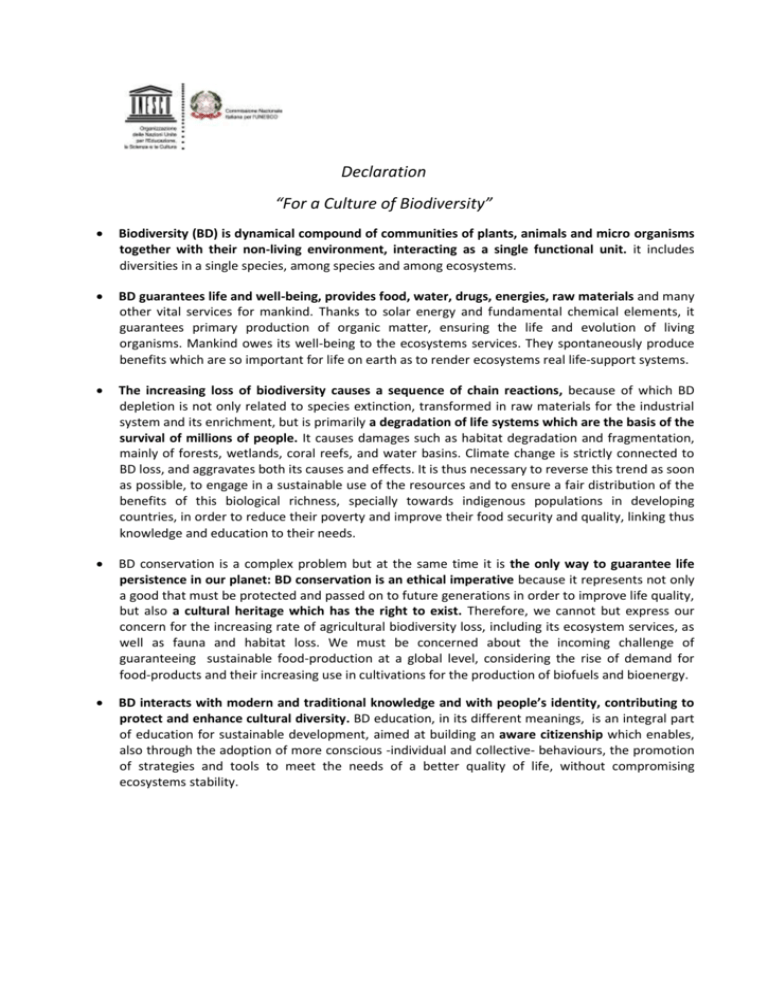
Declaration “For a Culture of Biodiversity” Biodiversity (BD) is dynamical compound of communities of plants, animals and micro organisms together with their non-living environment, interacting as a single functional unit. it includes diversities in a single species, among species and among ecosystems. BD guarantees life and well-being, provides food, water, drugs, energies, raw materials and many other vital services for mankind. Thanks to solar energy and fundamental chemical elements, it guarantees primary production of organic matter, ensuring the life and evolution of living organisms. Mankind owes its well-being to the ecosystems services. They spontaneously produce benefits which are so important for life on earth as to render ecosystems real life-support systems. The increasing loss of biodiversity causes a sequence of chain reactions, because of which BD depletion is not only related to species extinction, transformed in raw materials for the industrial system and its enrichment, but is primarily a degradation of life systems which are the basis of the survival of millions of people. It causes damages such as habitat degradation and fragmentation, mainly of forests, wetlands, coral reefs, and water basins. Climate change is strictly connected to BD loss, and aggravates both its causes and effects. It is thus necessary to reverse this trend as soon as possible, to engage in a sustainable use of the resources and to ensure a fair distribution of the benefits of this biological richness, specially towards indigenous populations in developing countries, in order to reduce their poverty and improve their food security and quality, linking thus knowledge and education to their needs. BD conservation is a complex problem but at the same time it is the only way to guarantee life persistence in our planet: BD conservation is an ethical imperative because it represents not only a good that must be protected and passed on to future generations in order to improve life quality, but also a cultural heritage which has the right to exist. Therefore, we cannot but express our concern for the increasing rate of agricultural biodiversity loss, including its ecosystem services, as well as fauna and habitat loss. We must be concerned about the incoming challenge of guaranteeing sustainable food-production at a global level, considering the rise of demand for food-products and their increasing use in cultivations for the production of biofuels and bioenergy. BD interacts with modern and traditional knowledge and with people’s identity, contributing to protect and enhance cultural diversity. BD education, in its different meanings, is an integral part of education for sustainable development, aimed at building an aware citizenship which enables, also through the adoption of more conscious -individual and collective- behaviours, the promotion of strategies and tools to meet the needs of a better quality of life, without compromising ecosystems stability. Several international commitments have been taken (CBD, MDG, The Johannesburg Plan, The Syracuse Chart), but now it’s time to move forward, to promote an engagement in concrete actions; starting from governments and local institutions, everyone has to make his contribution to ensure Education for BD as a life-long cultural and learning process, concerning both young people and adults, individuals and communities, which provides competencies and knowledge, but also values and sensitivity capable of orienting decisions in many sectors, professional, political, commercial, research, as well as citizens’ everyday choices: consumption, tourism, food, etc. involving all the aspects of society. An effective educational strategy for BD should incorporate the following objectives: rethinking about our relationship with nature; reinforcing the role of education and environmental information; increasing specific training for educators; encouraging the sharing and exchange of good practices among people who operate in the field of education for sustainability; improving the adoption of responsible behaviours; facilitating the activation of participatory processes and a major involvement of local communities in order to build an enduring future, based on awareness and participation. Didactical programs, both in school and university, must be multidisciplinary. Since biodiversity loss derives from unconscious behaviours and speculative economic activities, programs shouldn’t be only theoretical, but should include the involvement of students in practical actions, visits, excursions, etc. Parks and protected areas represent the best laboratories from which we can learn how to understand the natural systems we depend on, their benefits, and how we ought to behave in order to protect them. Moreover it is important to build a territorial network which links administrations, enterprises, associations, cultural operators, media, etc. in order to carry out an “alphabetization process” on the culture of BD protection and its sustainable use. This initiative is promoted by the Italian National Commission for UNESCO, in collaboration with some of the major partners of the UN-DESD (Decade on Education for Sustainable Development): FAO - Education for Rural People Partnership, Federation of Italian Parks (Federparchi), National Institute for Environmental Research and Protection (ISPRA), WWF, Legambiente and the Italian Geographical Society.
